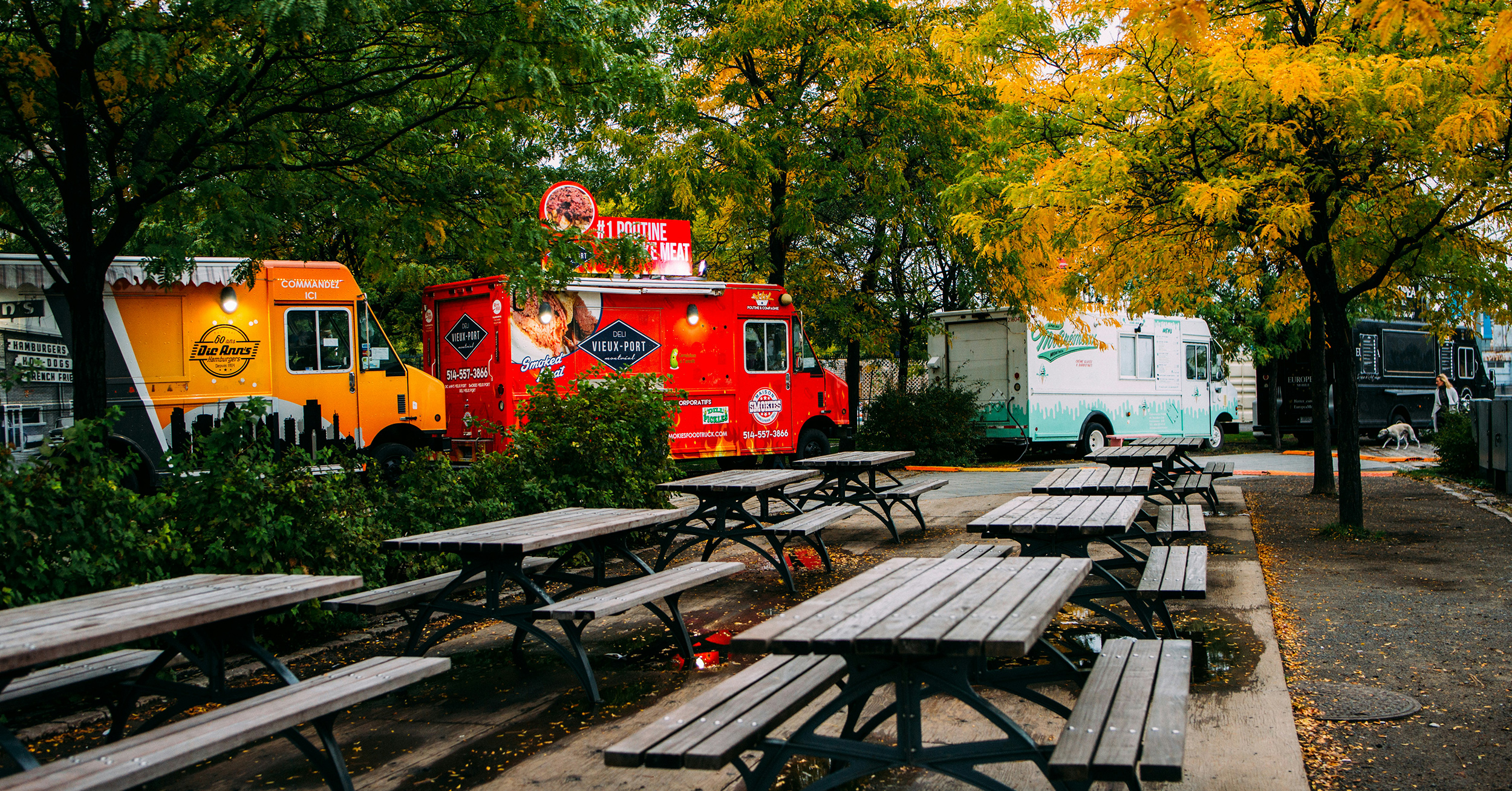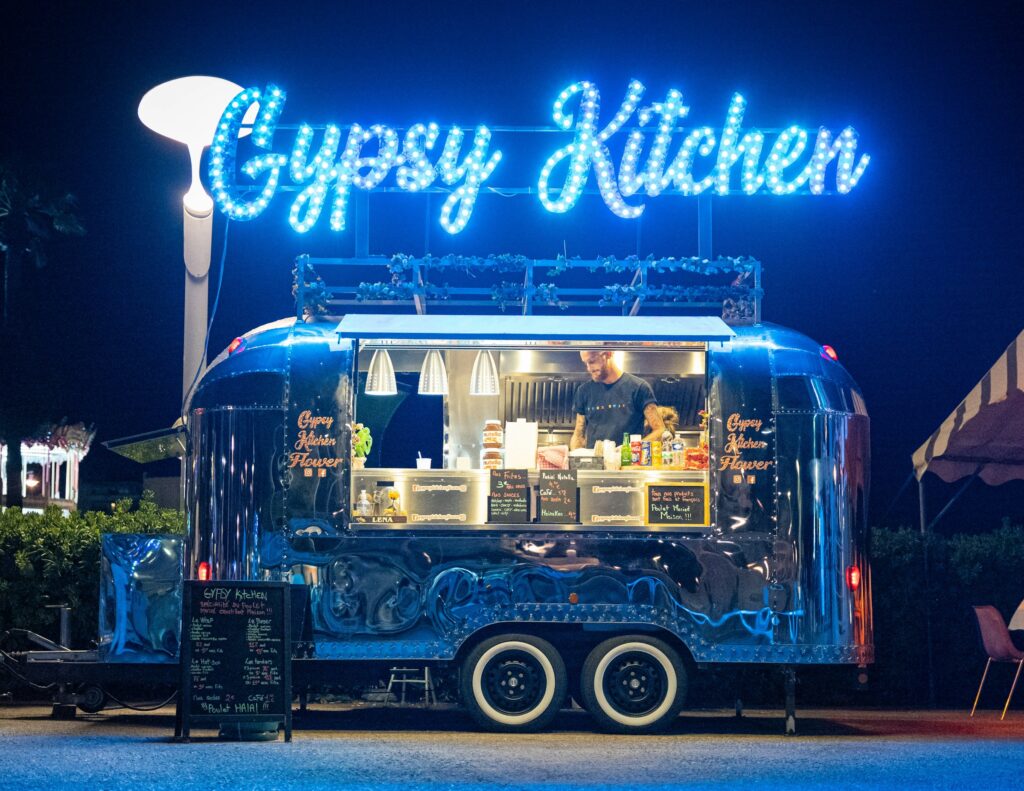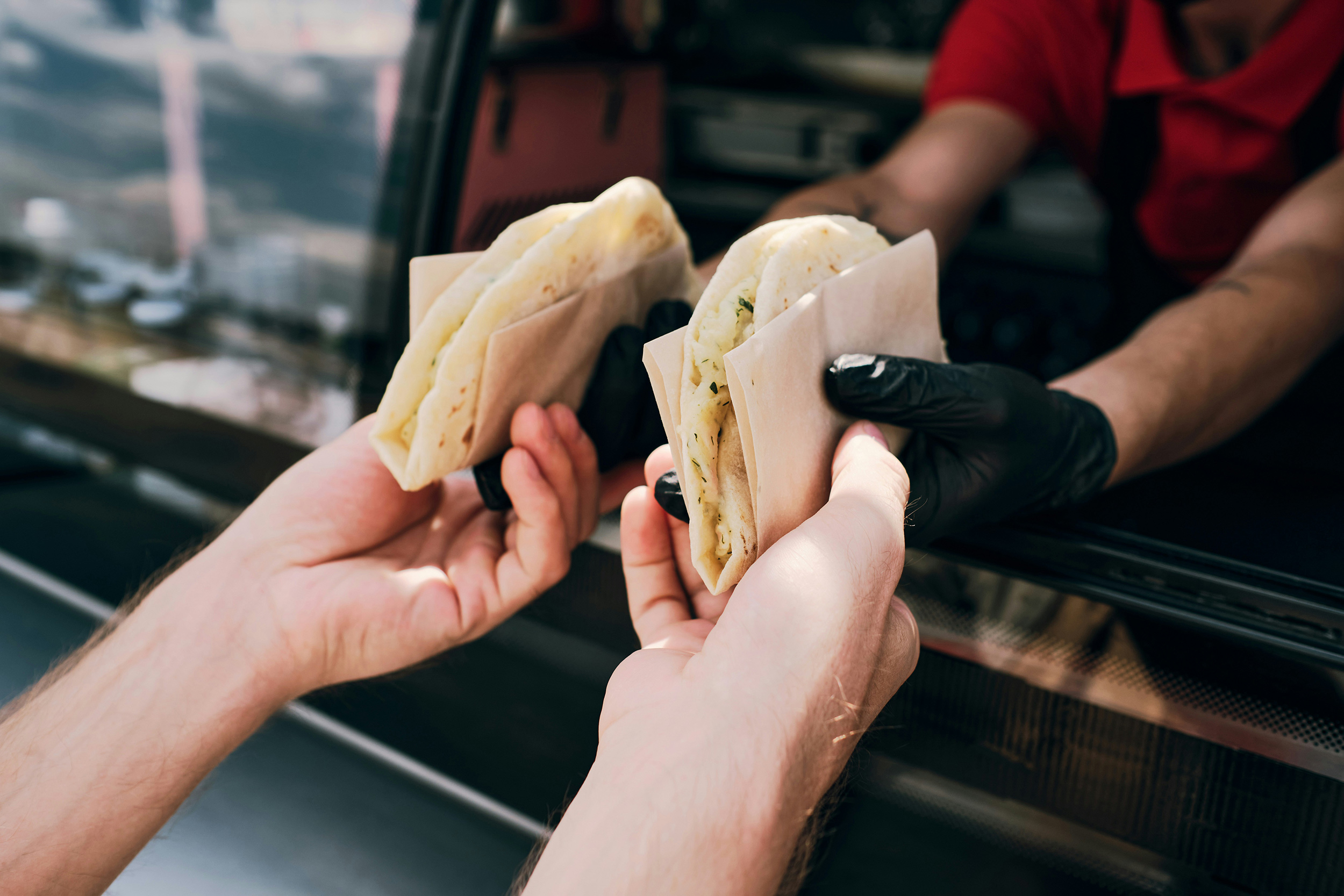How to Buy and Run a Food Truck: What You Should Know

Food trucks have become one of the most successful “drivers” of the food industry in recent decades. Since 2018, the food truck scene has grown nearly 10% every year and is only expected to rise even more.
There’s a reason customers go bananas for their favorite food trucks. Food trucks operate with limited menus and lots of freedom to go where the demand is high, so the potential for small-batch, creative, exciting, and experimental cuisine is nearly limitless. That’s why having the right food truck and setup is crucial for success.
From Chuck Wagons to Truck Havens: The Growth of Food Trucks
Buying food out of a truck isn’t a new idea. The first food carts date back to the Roman era. Later, they were commonly used to sell food to cowboys and covered wagon trains in the early days of the American West. But the modern food truck trend we think of today stems from the 1930s with the Oscar Mayer Wienermobile, a truck shaped like a hot dog that became famous nationwide.
Today, the food truck industry’s estimated market size is around 1.4 billion and is projected to break over 2 billion – yes, billion with a B – within the next few years. That’s a lot of dough!
So why are food trucks so popular? Besides their immense creative freedoms, food trucks go where the customers are: college campuses, parks, city downtowns, local bars, pop-ups, music festivals – the list goes on. Plus, since they operate with far less overhead than traditional restaurants, they often sell plates for less money while still making big profits.

Beginner’s Truck: Ready to Own a Food Truck?
Wondering if you should start your own food truck business? The good news is that there is a low initial investment required to begin with. Depending on specifications, a brand-new custom food truck could run between $50,000 and $150,000, but you can always buy a used truck or even lease one.
But here’s one of the best reasons to open your own truck: the flexibility! Imagine never working for someone else again, being able to cook the food you love, and building your own brand and relationship with your biggest fans.
Running a food truck gives you the rare opportunity to develop your food truck concept with a unique menu and customer experience, which means relatively little competition, an incredible advantage in the often-overcrowded food service industry.
And perhaps the best reason of them all – the potential earnings of a good mobile food business are impressive, with the average truck bringing in between $250,000 and $500,000 per year according to The Auguste Escoffier School of Culinary Arts (before expenses).
Getting All Your Trucks in A Row: What You Need to Know About Owning a Food Truck
Before starting your business, figure out how much money you have available for monthly operations. Knowing that amount will help you decide what truck and equipment to buy, what menu you can offer, and how much you can spend to keep things going.
As with any business, there’s more to consider than just the equipment. Consider how many people you’ll need to hire, the taxes and health insurance requirements for employees and small businesses, fees, bills, proper HR requirements, and knowing what papers must be filed to start your business.
It will also be a good idea to research the local permits, requirements, licenses, and insurance needed when starting your food truck, as those will all contribute to your required startup budget.

Rules of the Road: Proper Food Truck Permits
You will need to determine what permits and licenses you need for each state or city you work within. Some paperwork you will likely need includes:
- A Business License
- A Commercial Driver’s License
- Hawker’s Permit/Vending License
- Health Department Permit
- Employee Health Permit/Food Handling License
- Liquor License
More Bang for Your Truck: Monthly Expenses
The cost of ingredients will depend on your menu, of course, so you should take care when planning your dishes and research ahead of time when preparing your budget.
On top of your food costs, you want to tally up your monthly operating expenses. Those can vary depending on local rent, insurance, permits, labor costs, fuel costs, marketing and advertising, equipment maintenance, repair costs, plus the cost of ingredients.
In an ideal world, all food truck entrepreneurs would have enough available cash to finance the month-to-month operation of their business, but we all know that’s not usually the case. Finding a capital investor, applying for a small business loan, and using credit cards are all reasonable options to cover your startup costs and get you through the first year or so. Most restaurants – food trucks included – don’t start making real profits and cutting down their debts until after the first one-and-a-half to two years.
Trucks of the Trade: What Kind of Food Truck Should You Buy?
There are plenty of options when shopping around for a new food truck. While it can seem overwhelming, more choices mean more opportunities to find your perfect truck!

New Trucks
- Roaming Hunger has answers and resources for all your food truck concerns. They also provide business opportunities like catering.
- Food Truck Empire has various food trucks, carts, and trailers across the US and Canada. There are even custom models and a directory of excellent manufacturers.
- Chef Units make custom, personalized mobile food service vehicles. They are an excellent choice for beginners or those looking to grow their business and pride themselves on supporting the customer during construction.
Used Trucks
- UsedFoodTrucks.com is the premier site for pre-owned food trucks. You’ll find what you need quickly and easily with their extensive selection. View photos, pricing, and specs before deciding, and get delivery options for added convenience.
- Used Vending is an online, trusted shop servicing Canada and the USA. They sell everything from food trucks to full kitchen trailers. They are a favorite among mobile chefs.
Auctions and Classifieds
- Craigslist is a great place to start if you’re looking for your own food truck. You can find various vehicles with everything you need already available. Looking for food trucks that work with propane is a good idea, so you don’t need to rely on electrical hook-ups.
- eBay is another excellent source when you are looking for food trucks ready for business. Many choices are budget-friendly and might even have custom equipment to meet unique needs.
Remember: Buying a food truck is just like buying any other car – you have the power to negotiate the price! On top of that, if you become a regular customer with food and supply vendors, it’s up to you to ask for discounts and negotiate better long-term rates!
Should I Buy, Rent, or Lease My Food Truck?
- New: If you have enough startup funds, a custom-built truck is the cream of the crop. A custom build is the way to go if you require specialty equipment like pastry ovens, woks, smokers, griddles, freezers, or BBQ grills. They may cost more upfront, but they will ensure you have the right tools to make the best food and the most profit down the line.
- Used: You may not have all the fancy customizable options in a used truck, but they come at a much more accessible price. Plus, you can always deck them out over time with any cooking equipment or special features you want, which means the only thing you have to worry about in the beginning is putting your personal touches on a solid foundation.
- Lease: Leasing a food truck is always a good option as well. Leasing offers you the bells and whistles of a new truck but without the responsibilities. You pay a higher monthly price for a lease agreement than a full loan, but you won’t have to worry about repairs, maintenance, or damages. After your lease agreement is up, you return the truck. It is a great strategy if you plan to upgrade soon or want to try running a food truck business before fully committing. There are also lease-to-own options.
- Franchise: If you are more interested in opening an established food truck operation that is almost guaranteed to succeed, purchasing and running your food truck franchise might be the best option. The best part is that it comes with a built-in customer base!
Souped-Up Ride: Food Truck Features and Considerations
Size: Most food trucks are around 7 feet wide – narrow enough for street parking but wide enough to accommodate most staffing and equipment needs. They can range anywhere from 10 to 34 feet in length, depending on the size of the operation, with most average trucks falling between 14 and 20 feet long.
Layout: When planning the layout of your truck, there are some must-have spaces you’ll need to incorporate, including stove/fryer space, refrigeration, work/prep space, clean/sink area, other cooking equipment, storage, warming/holding space, security awning, serving space, outside/window, ventilation.
Safety: You must ensure that your equipment, ventilation, sanitation, and food storage comply with local health codes, so research your state’s codes here.
Remember: Like with a new or used car, taking the time to test drive and inspect any truck you consider buying is always a great idea. Not all chefs are certified mechanics, so bringing in a specialized mechanic and commercial kitchen equipment repair technician to help you make your choice isn’t a bad bet either.
Don’t Push Your Truck: Important Food Truck Maintenance
Food trucks take a beating daily from frying, boiling, chopping, washing, and extreme cooking temperatures on the inside and the weather, the road, and customers from the outside. To keep your truck in the best shape, it’s essential to keep up with routine maintenance. Here is a list of suggested steps for you to follow:
- Regularly check the oil level and battery power.
- Check tire pressure after long drives and with large temperature fluctuations.
- Take your truck in for a tune-up at least once a year.
- Deep clean your cooking and prep stations to avoid food residue or grease buildup.
- Promptly repair any scratches or rust on the truck’s exterior.
- Always keep necessary tools on hand so you don’t get stuck waiting on repair techs for minor problems.
- Managing operational costs, insurance, and ongoing expenses.
Let’s Talk Money: Are Food Trucks Profitable?
Salary: On average, the salary of a food truck owner falls between $24,000 and $153,000 per year nationally, with trucks that park in high foot traffic areas or cater for special events/private parties potentially bringing in even more. We know – that’s a big range, but remember that scale, location, and marketing can significantly impact how much money your business brings in.
Profitability: Your business’s profit margins depend on many factors, but can range from $23,000 to over $100,000 annually. The wages you pay your staff, the quality of ingredients you use, the complexity of your menu items, and how much you advertise can all affect your profit margins. However, you don’t want to skimp on any of those items – they are all sound investments for the future of your mobile kitchen!
Success: Here at Eleven36, we believe in ensuring you have the best tools and equipment to make your business successful. We offer everything you need, from disposable food containers to under-counter refrigeration systems, small stovetops, and food preparation equipment.

The Truck Stops Here: Eleven36 Has Your (Mobile) Kitchen Needs Covered
Becoming a mobile chef in your own moving restaurant can be a worthwhile endeavor. If you crave the freedom of being your own boss, creating exciting food, interacting with your customers one-on-one, and working hard while doing it, then owning your own food truck business might be for you! Reach out to Eleven36 today – we’ll help you stock your food truck with all the necessary kitchen equipment to get you on the road to success!
